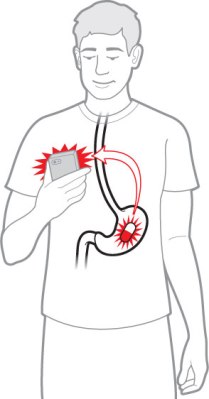Monitoring patients usually requires visits to the doctor, invasive tests and bulky, expensive devices. But what if getting a checkup were as simple as slapping on a Band-Aid?
Such is the potential of bioelectronics, an emerging field whose leaders are developing small, wearable, wi-fi-enabled sensors that can detect all kinds of vital information — heart rate, body temperature, hydration levels — and relay them to your doctor or your smartphone in real time. Once patients have the big data about their bodies, the thinking goes, they can be proactive about their health, cut care costs and foster better relationships with their doctors. “We want to change the world,” proclaims David Icke, CEO of bioelectronics firm MC10, which is leading the health-sensor charge.
He’s got a ways to go. Although consumers have embraced attachable devices like Fitbit, a digital pedometer, bioelectronics is for now a much smaller market. Most of its game-changing sensors — like the one that can assess concussion risk and measure skin properties — are in development or just on the cusp of commercial availability. Still, researchers at firms around the world are working hard to make them as comfortable and affordable as possible. The price of MC10 sensors is typically $1 to $10. Which means the most cost-effective doctor could be one that’s with you all the time.
(MORE: Three Scientific Breakthroughs That Will Blow Your Mind)

What Sensors Can Do
Check Your Vitals
Once patients affix Preventice’s BodyGuardian sensor to themselves, it collects a wealth of data — pulse, respiration rate, activity levels — and alerts a doctor if anything is off base.
Assess Impact
A helmet sensor developed by Reebok and tech firm MC10 analyzes head impacts during sports play and flashes a light when players get hit too hard, so they will know to take a break.
Track Your Medicine
Proteus Digital Health is developing a grain-of-sand-size sensor powered by stomach fluid that could be swallowed as a pill and then relay information to a smartphone about the effects of a particular drug.
Improve Athletic Performance
Another MC10 sensor, stuck on like a Band-Aid, sends real-time hydration levels to athletes’ smartphones so they know exactly when and how much they should drink.
Nurse Your Wounds
John Rogers, a researcher at the University of Illinois, is developing tiny, dissolvable sensors that can generate heat near surgical incisions to prevent infection.
Keep Skin Healthy
A translucent sensor developed by MC10 can be stuck on to check users’ UV-exposure levels while they sleep and recommend the best moisturizers.
